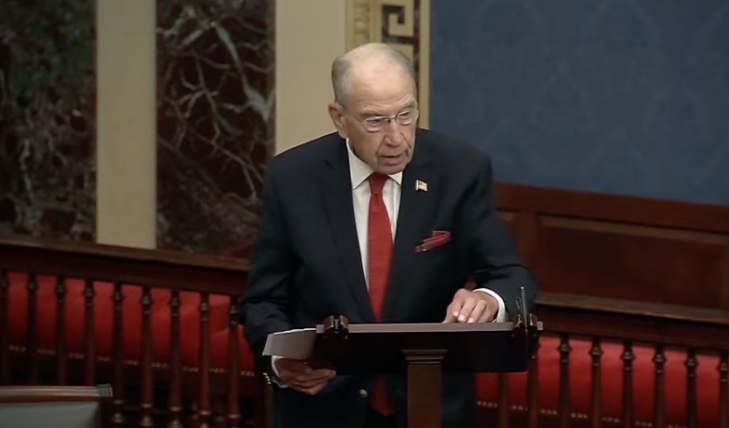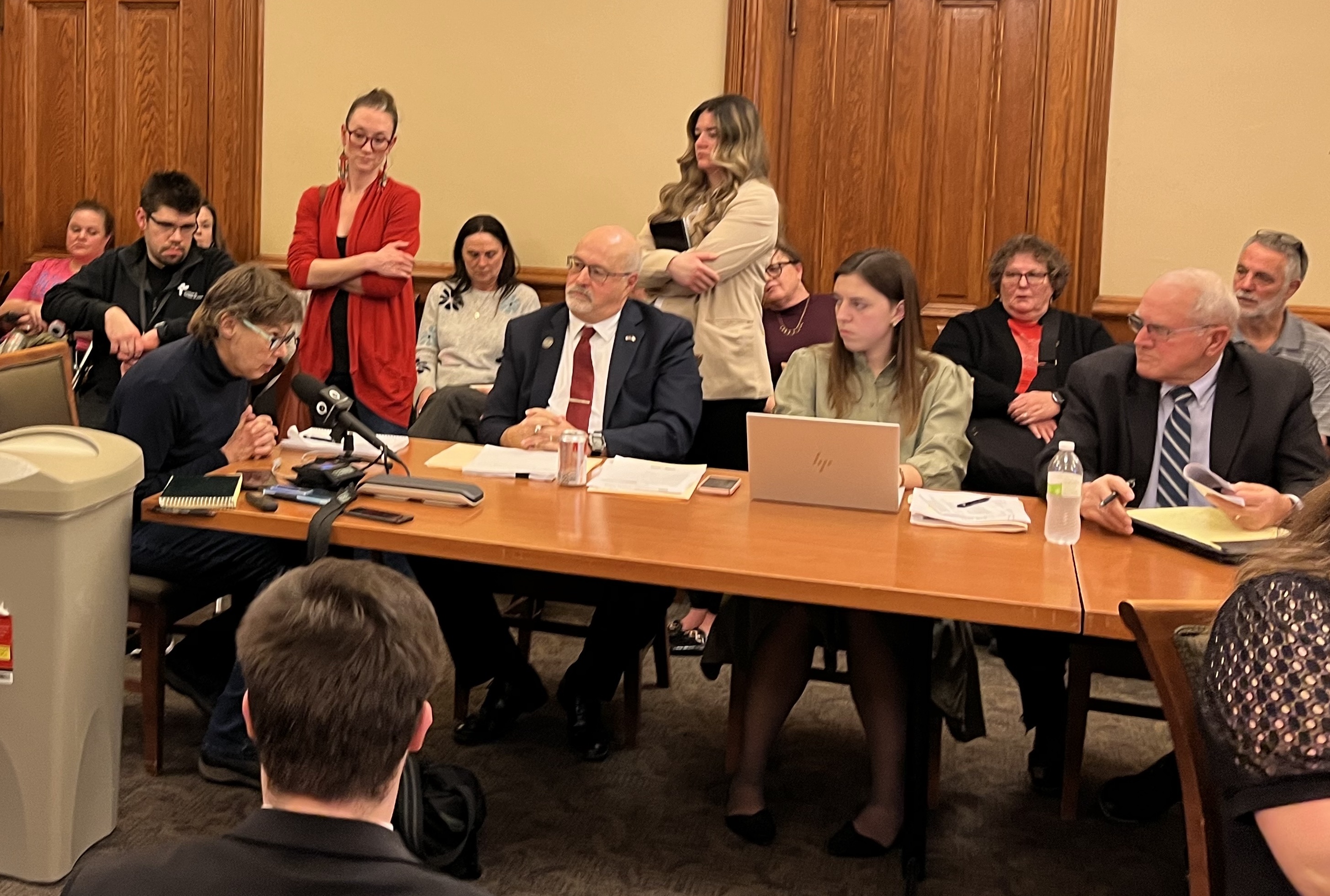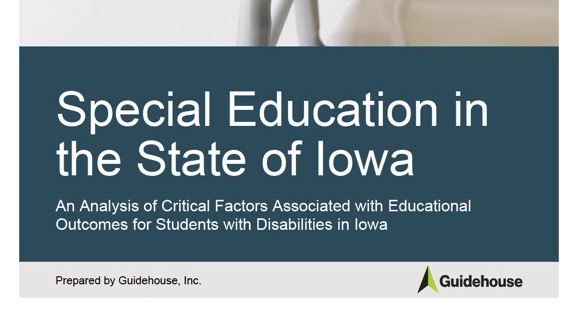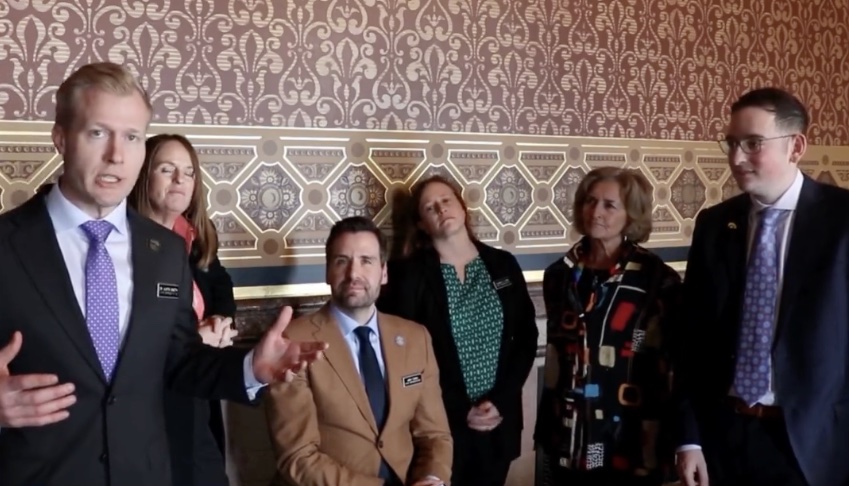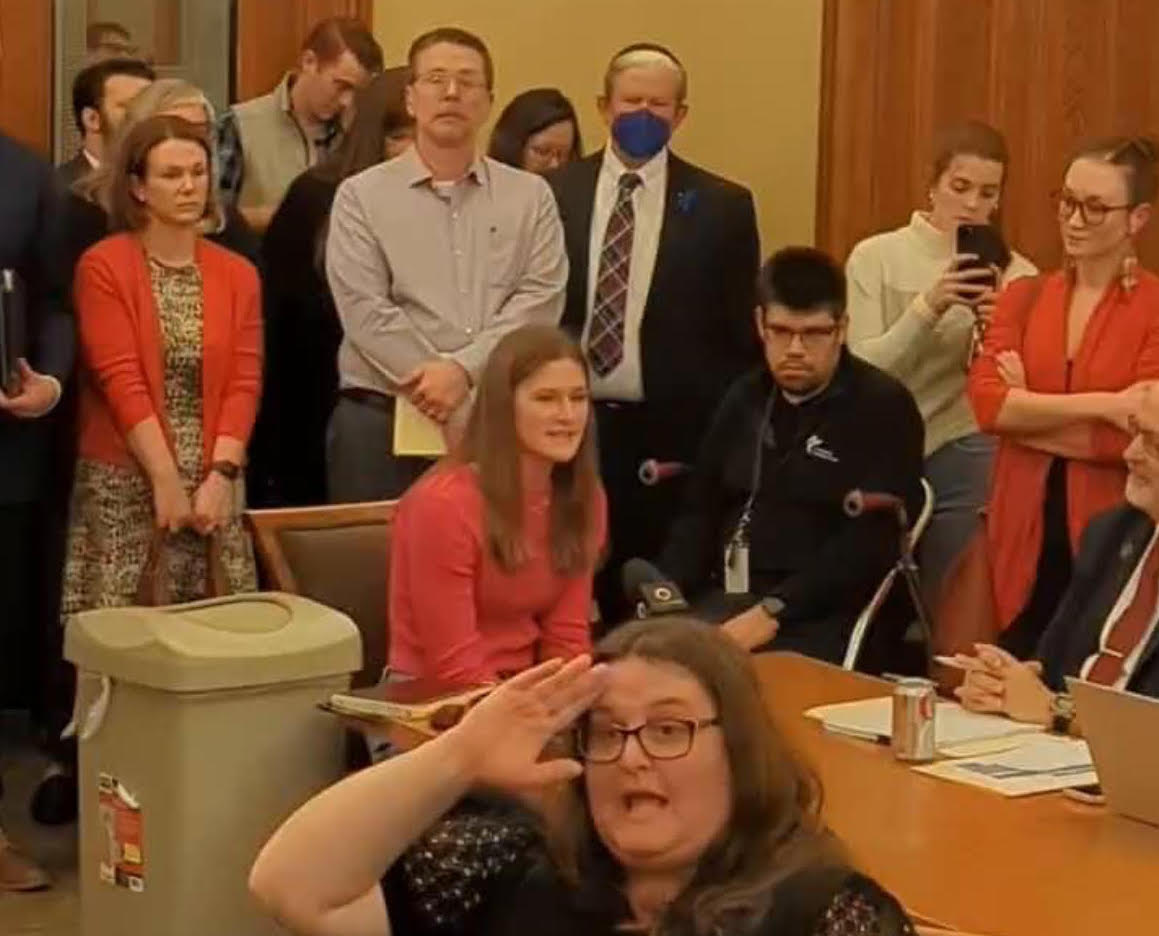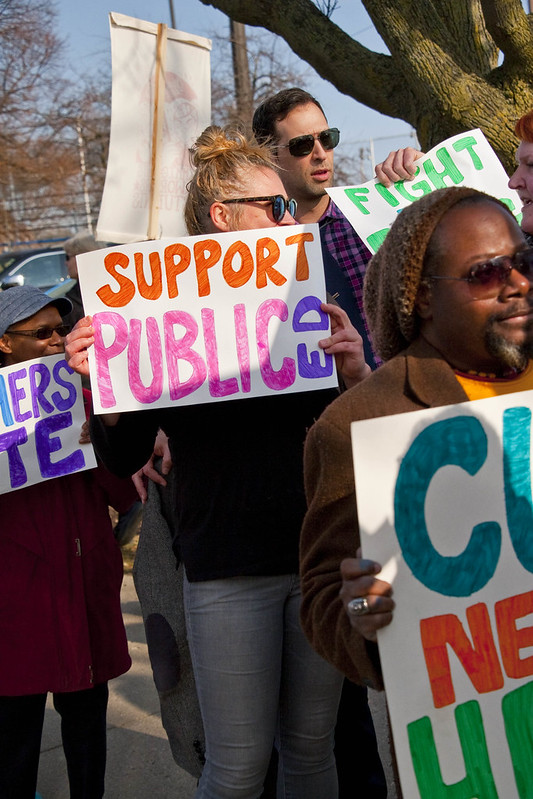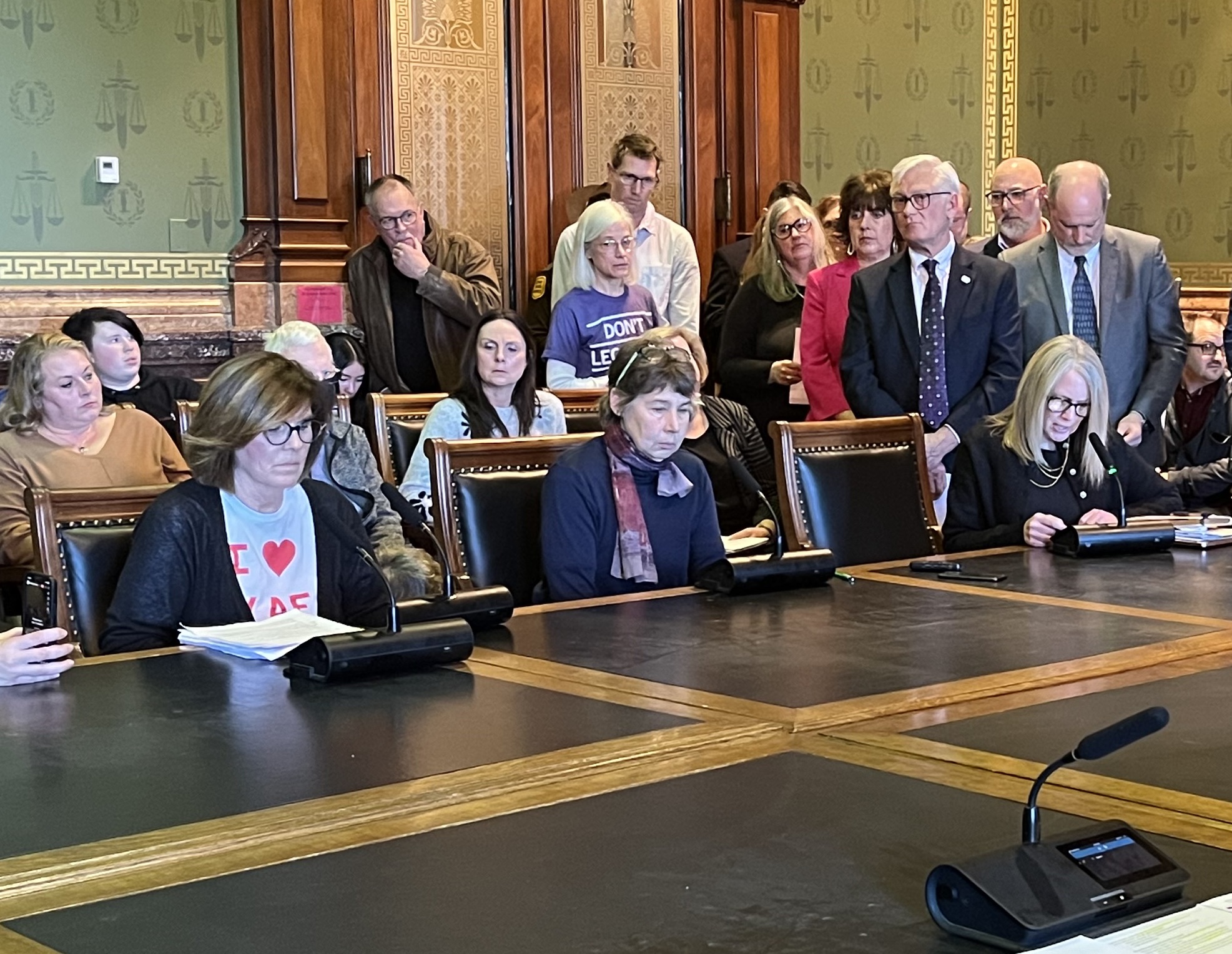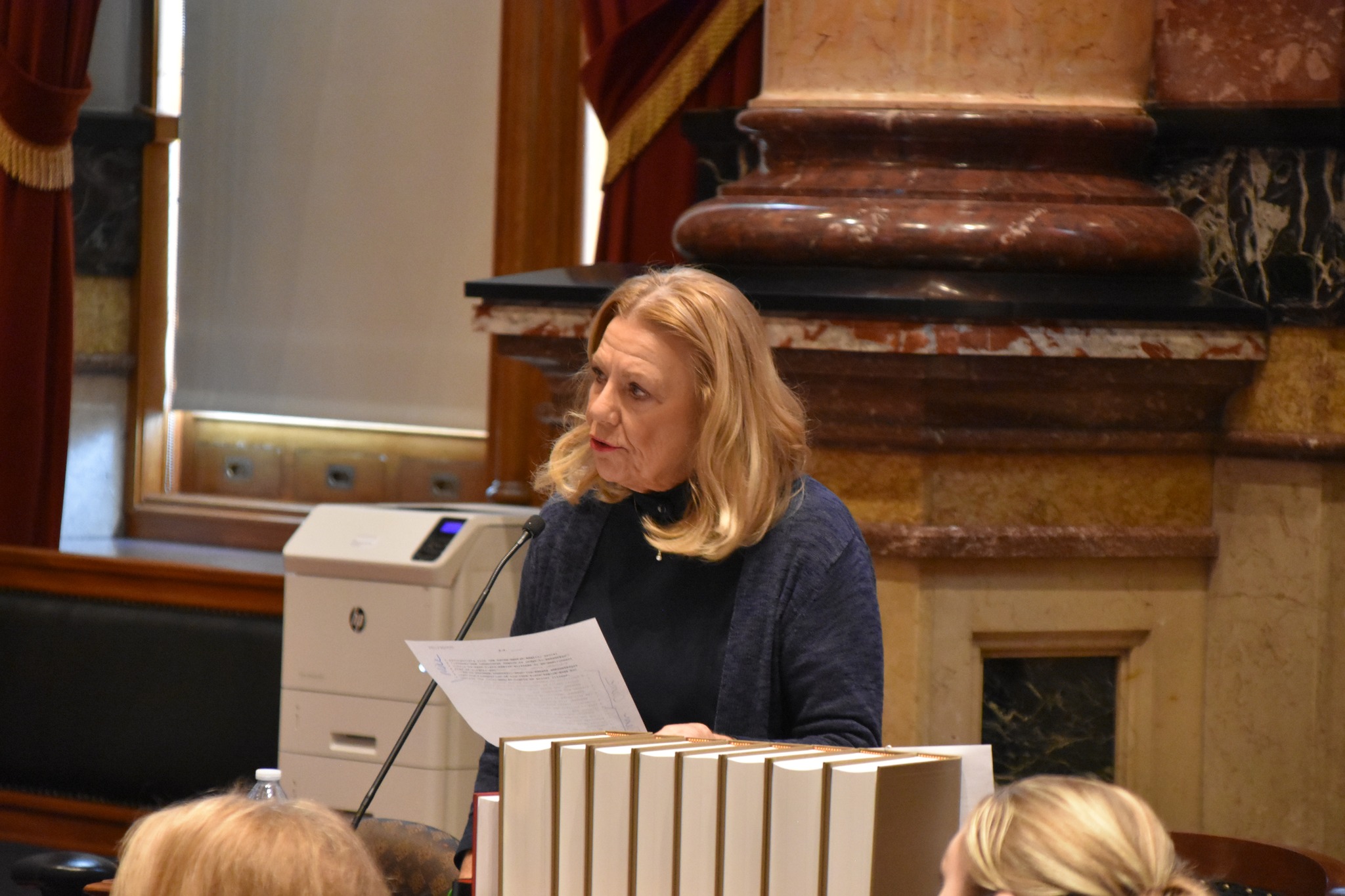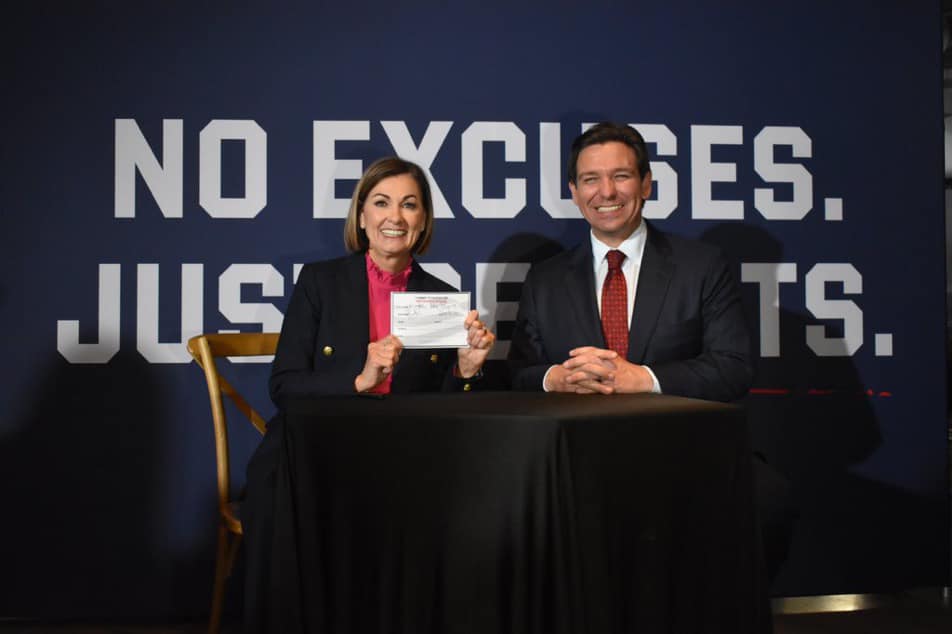
Jen Pellant is president and field coordinator of the Western Iowa Labor Federation. This essay is slightly adapted from a speech she gave at a February 26 rally at the state capitol. Photo of Jen Pellant speaking at that event is by Al Womble, political director of the Iowa Federation of Labor.
This year’s Iowa legislative session has brought us yet another attack on Chapter 20 of the Public Employee Relations Act of 1974. Once again, extreme Republican lawmakers are attempting to roll back labor protections for public employees by making it easier for employers to de-certify their unions. These protections were originally forged by a bipartisan coalition of Iowa’s elected officials and led to more than 40 years of middle-class prosperity and good state/state employee relations in this state.
Yet here we are after the draconian cuts to Chapter 20 that occurred in 2017, and apparently it wasn’t enough to kill off public sector unions. Iowa’s public employees are tired of losing ground and attempting to defend what’s left. It’s time to go back to the beginning and look at the bigger picture. That’s why I stood in the capitol rotunda last week and talked about the grandaddy of all union-busting laws: so-called “Right to Work” legislation, and why it’s time for Iowa to repeal it.
Continue Reading...
